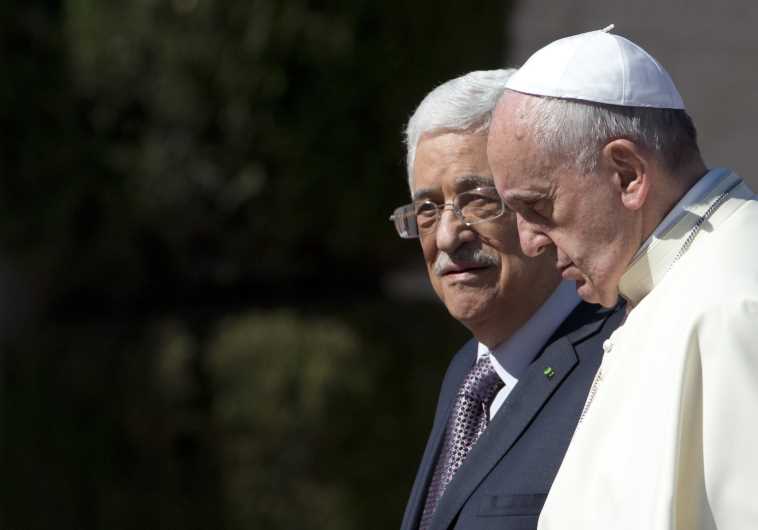Israel at center of international diplomatic storm as vatican, FIFA, EU step up pressure
The international interference could end up backfiring and encouraging Palestinians to stay away from the negotiating table.
 Pope Francis (R) meets PA President Mahmoud Abbas in Bethlehem May 25, 2014.ByLINDA GRADSTEIN/THE MEDIA LINE
Pope Francis (R) meets PA President Mahmoud Abbas in Bethlehem May 25, 2014.ByLINDA GRADSTEIN/THE MEDIA LINE